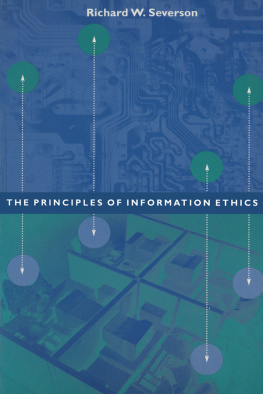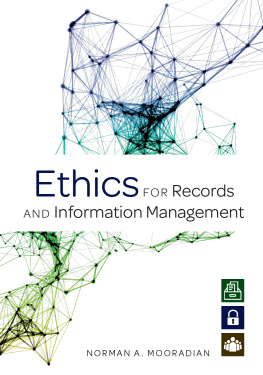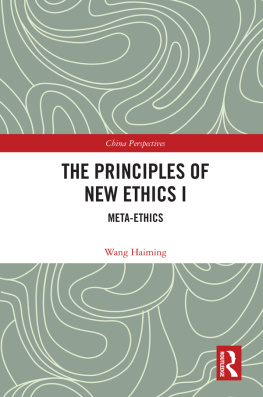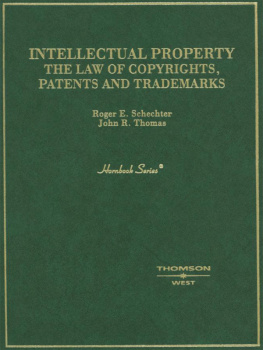Richard Severson - Ethical Principles for the Information Age
Here you can read online Richard Severson - Ethical Principles for the Information Age full text of the book (entire story) in english for free. Download pdf and epub, get meaning, cover and reviews about this ebook. year: 1997, publisher: Routledge, genre: Romance novel. Description of the work, (preface) as well as reviews are available. Best literature library LitArk.com created for fans of good reading and offers a wide selection of genres:
Romance novel
Science fiction
Adventure
Detective
Science
History
Home and family
Prose
Art
Politics
Computer
Non-fiction
Religion
Business
Children
Humor
Choose a favorite category and find really read worthwhile books. Enjoy immersion in the world of imagination, feel the emotions of the characters or learn something new for yourself, make an fascinating discovery.
- Book:Ethical Principles for the Information Age
- Author:
- Publisher:Routledge
- Genre:
- Year:1997
- Rating:4 / 5
- Favourites:Add to favourites
- Your mark:
- 80
- 1
- 2
- 3
- 4
- 5
Ethical Principles for the Information Age: summary, description and annotation
We offer to read an annotation, description, summary or preface (depends on what the author of the book "Ethical Principles for the Information Age" wrote himself). If you haven't found the necessary information about the book — write in the comments, we will try to find it.
Ethical Principles for the Information Age — read online for free the complete book (whole text) full work
Below is the text of the book, divided by pages. System saving the place of the last page read, allows you to conveniently read the book "Ethical Principles for the Information Age" online for free, without having to search again every time where you left off. Put a bookmark, and you can go to the page where you finished reading at any time.
Font size:
Interval:
Bookmark:
The
Principles
of
Information
Ethics
The Principles of Information Ethics
Richard J. Severson

First published 1997 by M.E. Sharpe
Published 2015 by Routledge
2 Park Square, Milton Park, Abingdon, Oxon OX14 4RN
711 Third Avenue, New York, NY 10017, USA
Routledge is an imprint of the Taylor & Francis Group, an informa business
Copyright 1997 Taylor & Francis. All rights reserved.
No part of this book may be reprinted or reproduced or utilised in any form or by any electronic, mechanical, or other means, now known or hereafter invented, including photocopying and recording, or in any information storage or retrieval system, without permission in writing from the publishers.
Notices
No responsibility is assumed by the publisher for any injury and/or damage to persons or property as a matter of products liability, negligence or otherwise, or from any use of operation of any methods, products, instructions or ideas contained in the material herein.
Practitioners and researchers must always rely on their own experience and knowledge in evaluating and using any information, methods, compounds, or experiments described herein. In using such information or methods they should be mindful of their own safety and the safety of others, including parties for whom they have a professional responsibility.
Product or corporate names may be trademarks or registered trademarks, and are used only for identification and explanation without intent to infringe.
Library of Congress Cataloging-in-Publication Data
Severson, Richard James, 1955
The principles of information ethics /
Richard Severson.
p. cm.
Includes bibliographical references and index.
ISBN 1-56324-957-X (hardcover: alk. paper).
ISBN 1-56324-958-8 (pbk.: alk. paper)
1. Information technologyMoral and ethical aspects.
I. Title.
T58.5.S48 1997
174.90904dc21
9652983
CIP
ISBN 13: 9781563249587 (pbk)
ISBN 13: 9781563249570 (hbk)
A generation ago, Americans suffered a moral crisis due to the automation of hospitals. For the first time in human experience, people who seemed dead (loss of heartbeat, loss of breath) could be revived by sophisticated drugs and machines.
Some patients snatched from deaths jaws in high-tech hospitals go on living quality lives for many years; some become little more than machine-dependent vegetables. The latter possibility was the cause of our moral anguish. When is it appropriate to use every available means to save a life, and when is it appropriate to let nature take its course? That is a question we could not answer without the help of ethical reflection.
There is no question that technological advancements improve the lot of human existence. But new technologies also make life more complicated and confusing, as the case of hospital automation illustrates. My assumption in this book is that we have reached the same point of moral confusion and crisis with respect to information technologies that was reached a generation ago with respect to new hospital technologies.
Biomedical ethicists taught us how to rely on a short list of easily remembered principles when making tough decisions about life-and-death matters in the hospital setting. Likewise, I offer a list of four easily remembered principles that will help us make wise decisions when confronted with complex information age issues. For example, what would you do if the software company for which you work makes unrealistic promises to a potential new client? Or what kind of E-mail policy would you adopt in order to maintain a good working environment in the department that you manage? The principles discussed in this bookrespect for intellectual property, respect for privacy, fair representation, and nonmaleficencewill help you answer these questions and many others like them.
This book has been written for students and interested general readers and is suitable as a textbook for classes in business, computer science, library science, information science, and ethics. As an ethics primer for people without a philosophical background, this book is grounded in common sense; every effort has been made to make it both readable and interesting. Many examples from movies, literature, business, and real life are incorporated into every chapter. Each chapter ends with questions for further thought that will encourage readers to think for themselves, and a number of case studies have been included in an appendix so that readers can practice the simple method of principled ethics introduced in .
This book grew out of an ethics lecture I give in a required class at Marylhurst College in Portland, Oregon. Titled Information Power, the class introduces students to a wide range of issues pertaining to postindustrial information society. Students are also taught the basic computer-mediated research skills that are necessary in these high-tech times.
I wish to thank the students at Marylhurst College for their lively interest in ethics and their thoughtfulness. As often happens in good classes, I have learned as much as I have taught. I also wish to thank Pierina Parise and Paul Gregorio for encouraging me to get involved in the Information Power class. Finally, I want to express warm thanks to Peter Coveney, executive editor at M.E. Sharpe, for inviting me to write this book and for supporting me from start to finish.
The
Principles
of
Information
Ethics
Almost thirty years before he published The Origin of Species (1859), Charles Darwin spent five years exploring South Americas coasts as an unpaid naturalist aboard the ship HMS Beagle. The rigors of the tripits isolation, physical labors, and abundant exposure to exotic species and geological formationshelped transform Darwin into a skilled observer and writer. At the southern tip of South America is the large island called Tierra del Fuego, which means land of fire. It was heavily forested, cold, cloudy, and sparsely inhabited by tribal natives at the time of Darwins visit. In his memoir, Darwin describes several encounters with the Fuegian people. He was struck by what interested (and did not interest) the Fuegians about their European visitors. They were fascinated by the colorful
At first glance, it might seem appropriate to think of computer technology as a modern-day version of the Beagle. There is a temptation (at least for some of us) to act like Fuegians by avoiding computers and scoffing at people who hype the information age. Taking a skeptical stance can be healthy and refreshing. In the end, however, we will all become efficient computer users. Automated teller machines (ATMs) are too convenient to ignore for long, as are automated library catalogs and even E-mail accounts. How the Internet works is not a worrisome question for generations raised on Star Trek We know how to conceive exotic new technologies, which function more like Darwins rowboat in our ever-changing society. Our difficulty is different from the Fuegians.
We have become accustomed to an electronic world that is far removed from the rhythms of nature that used to govern human activities. When the sun goes down, electric lights give us other options than going to bed.in 1991 comes to mind as an eerie example of how electronic media have overcome the age-old barrier of physical distance. As unregulated conduits of information and commerce, computer networks (the next evolutionary stage in electronic technologies) now threaten the integrity and meaning of national borders.
The benefits and blessings of life in the electronic age are undeniable. So, too, is the fact that we are becoming more and more dependent on technology. Technology dependence has made human life permanently more complicated. Complexity is one of the unthought consequences of life in an electronic world. It has infiltrated every aspect of our lives, including the way we think. Have you noticed this? There is a tendency to make everything more complicated. Now that we have the world of information at our fingertips on the Web, we dont know how to stop searching and come to a conclusion. Or think of the millions of new pages of law that are being promulgated by the federal government in order to maintain some sense of national order. A New York attorney recently wrote a best-seller about how too much law is killing America. He said that we have lost our common sense, and I agree. Whereas the Fuegians lived in a simple world and had difficulty conceiving complex intrusions, we live in a complex world and have difficulty grasping the simple truths that make life meaningful.
Next pageFont size:
Interval:
Bookmark:
Similar books «Ethical Principles for the Information Age»
Look at similar books to Ethical Principles for the Information Age. We have selected literature similar in name and meaning in the hope of providing readers with more options to find new, interesting, not yet read works.
Discussion, reviews of the book Ethical Principles for the Information Age and just readers' own opinions. Leave your comments, write what you think about the work, its meaning or the main characters. Specify what exactly you liked and what you didn't like, and why you think so.








